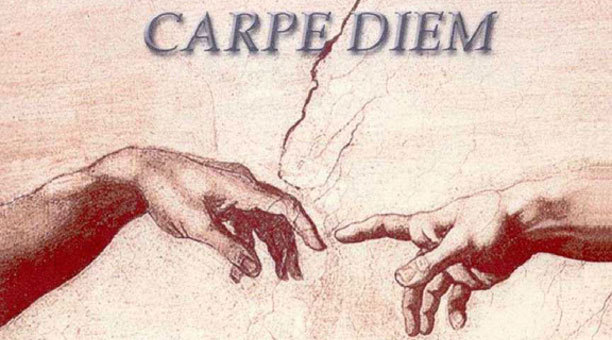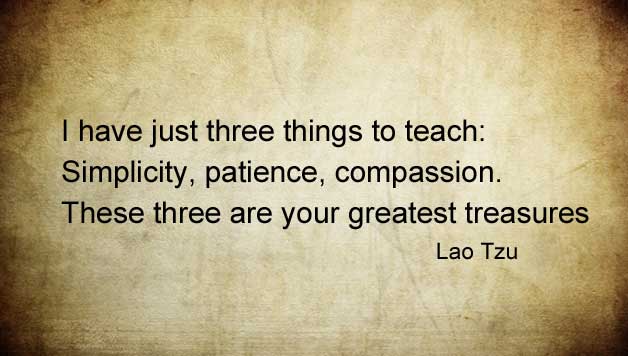
The Madness of Materialism and Consumerism: A Very Black Friday Indeed
Shoppers get into the madness of Black Friday Sales. Photo: Twitter
The Big Question surly must be:
As we are only here for a short while, with so little time to do all we should do, why then this madness to posses more and more?
Have you not heard about Memento mori and Memento vivere?
‘There is no time like the present to look at life from its widest perspective’
“It occurred to me that there were two sets of virtues, the résumé virtues and the eulogy virtues. The résumé virtues are the skills you bring to the marketplace. The eulogy virtues are the ones that are talked about at your funeral — whether you were kind, brave, honest or faithful. Were you capable of deep love?"
Although it's still over a week or so away, Black Friday is already in the front of many shoppers' minds. Sale promotions are enticing the masses to rise and oil the wheels of money-driven capitalism: Buying things that they do not need, with the money that they do not have, to impress the friends that they do not have time for.
Thanksgiving vs. Black Friday: Where is the Gratitude?
Many retailers are aware of this, and have already begun to release the specifics of the deals they will offer on the day after Thanksgiving. Other stores have had their promotional offers "leaked" online beforehand due to the eagerness many shoppers have to find the best deals, and more so, to create a false hype to fool the masses even more! Many cannot wait, for this opportunity of a life time! A madness that repeats itself every November!
However, this madness ‘shop till you drop’ has brought us all a very bitter harvest. As Sue Gerhard, the author of The Selfish Society: How we all forgot to love one another and made money instead, has candidly reminded us:
“We are rich in material comforts at the price of having become self-centred, self-interested, self-absorbed and self-regarding. Self-contained, too – though also not in a good way, as late capitalism succeeded in rotting our emotional links with community, neighbourhood, family and outer world and forced us into making free-market, gimlet-eyed competitors of ourselves. Our relations with one another – in which our forebears found, if not happiness, at least a proper sense of belonging – are shot. Where "selfishness" might once have evoked someone using up the last of the milk, now those proliferating "self" prefixes have eaten away at the moral fabric we used to snuggle under together.”
Nowhere can this be seen more clearly than when a ‘darling’ of the social media and Instagram, the queen of self-promotion, Essena O’Neill, came out and spilled the beans on the false, unreal, materialistic lives that many of us are leading:
Good on you Ms. Essena O'Neill: Social media 'is not real life'
Memento mori, Memento vivere and the Madness of Black Friday
The futility and the madness of materialism, consumerism, accumulation of useless gadgets and tools, and all other falsehoods, can be noted very clearly if they are contrasted with the ultimate reality of life, which is: Memento mori-“remember that you must die.”
As historian and editor of History of Psychology, James H. Capshew, has wisely reminded us: “The prospect of death is reason enough to embrace life”.
The shortness of life is to be celebrated, remarked Seneca: it reminds us to live. “So the man who restrains himself within the bounds set by nature will not notice poverty; the man who exceeds these bounds will be pursued by poverty however rich he may be” remarked Seneca in On the Shortness of Life.
This, reminds me of memento vivere - "remember that you must live."
Seneca is just one individual from an impressive array of men and women who have argued that memento mori are invaluable in life. Cicely Sanders, the founder of the hospice movement, argued: "We do best in life if we look at it with clear eyes." Memento mori cultivates virtues such as gratitude, nurtures the experience of pleasures, enables an embrace of the present moment, facilitates decisions that affect who we strive to be - the eulogy as well as the resumé virtues, as David Brooks, the New York Times columnist has recently put it:
"About once a month I run across a person who radiates an inner light. These people can be in any walk of life. They seem deeply good. They listen well. They make you feel funny and valued. You often catch them looking after other people and as they do so their laugh is musical and their manner is infused with gratitude. They are not thinking about what wonderful work they are doing. They are not thinking about themselves at all.
“When I meet such a person it brightens my whole day. But I confess I often have a sadder thought: It occurs to me that I’ve achieved a decent level of career success, but I have not achieved that. I have not achieved that generosity of spirit, or that depth of character.
“A few years ago I realized that I wanted to be a bit more like those people. I realized that if I wanted to do that I was going to have to work harder to save my own soul. I was going to have to have the sort of moral adventures that produce that kind of goodness. I was going to have to be better at balancing my life.
“It occurred to me that there were two sets of virtues, the résumé virtues and the eulogy virtues. The résumé virtues are the skills you bring to the marketplace. The eulogy virtues are the ones that are talked about at your funeral — whether you were kind, brave, honest or faithful. Were you capable of deep love?
“We all know that the eulogy virtues are more important than the résumé ones. But our culture and our educational systems spend more time teaching the skills and strategies you need for career success than the qualities you need to radiate that sort of inner light. Many of us are clearer on how to build an external career than on how to build inner character.
“But if you live for external achievement, years pass and the deepest parts of you go unexplored and unstructured. You lack a moral vocabulary. It is easy to slip into a self-satisfied moral mediocrity. You grade yourself on a forgiving curve. You figure as long as you are not obviously hurting anybody and people seem to like you, you must be O.K. But you live with an unconscious boredom, separated from the deepest meaning of life and the highest moral joys. Gradually, a humiliating gap opens between your actual self and your desired self, between you and those incandescent souls you sometimes meet.”

Photo: digitalbloggers.com
Here you have it, all about Memento mori, Memento vivere, Materialism, Consumerism and the Madness of Black Friday. If you like what you have read, then, join us and boycott the Black Friday Sales, ensuring it fails, so that we can all become the agents of change to build the better world we are all hoping to create. The opportunity is upon us. Let us seize it. Carpe Diem!
References:
Memento mori - Wikipedia, the free encyclopedia
The Moral Bucket List - The New York Times
"The next best thing to knowing something is knowing where to find it”-Samuel Johnson
With a sincere hope that readers everywhere, all over the world, will discover “simplicity, patience and compassion” in all they do and hope for:

